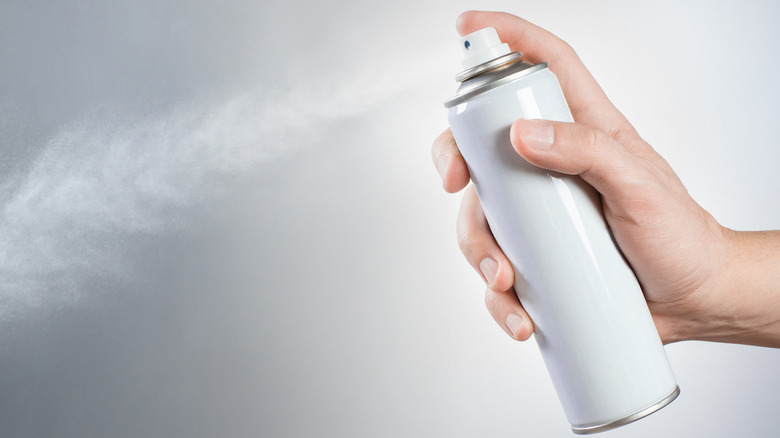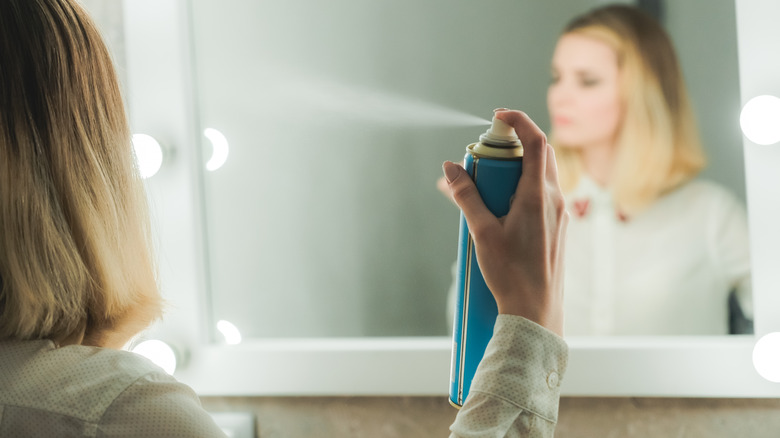Hair Spray Might Be Bad For You. Here's Why
When fending off frizz and humidity, hair spray comes to the rescue, effectively holding hair in place. A single blast of hair spray is propelled with a powerful force behind it, and it's often advertised with words like "strong" or "maximum hold." What is it about hair spray that makes it so effective, and is its chemical makeup potentially harmful to our health?
Emerging in the 1940s, the chemical makeup of almost all hairsprays hasn't deviated much from the original formula (via Kaia Naturals). Made up of polymers, solvents, propellants, and additives, the only change made to hair spray's formula occurred in 1980 when the use of chlorofluorocarbons (CFCs) was banned due to its harmful environmental impact.
According to Kaia Naturals, polymers are essentially plastic. Also used to hold together the layers within pieces of plywood, its polymers that keep hair in the user's desired shape. Ethanol alcohol is a common solvent used in many brands of hair spray, as it quickly dries hair in place. Qualifying as a volatile organic compound (VOC), its use has been limited, as some VOCs can cause breathing issues, irritate the eyes and throat, and impact organ and central nervous system function (via the American Lung Association). Propellants also serve as the force behind hair spray as it shoots out of an aerosol can. Propellants have been shown to cause allergic reactions, asthma attacks, and breathing issues. Additional chemical additives are used to give hair spray its malleability, further exposing us to chemical compounds.
Hazards of everyday hair spray use
Hair expert Jean Louis David says moderation is key, stating, "As long as you use it in moderation, there is no risk of it damaging your hair. If you love using hairspray, make sure you wash your hair regularly." Guidelines from the National Capital Poison Center seem to support these claims, describing mild exposure to hair spray chemicals as "minimally toxic." Rather, the danger lies in deliberate consumption or inhalation of the chemicals.
There may also be some concerns to keep in mind for everyday hair spray users. Continued long-term exposure to hair spray chemicals can eventually dry out hair and cause breakage (via Hair Madness Salon). Additionally, because we are absorbing and breathing in some of hair spray's chemicals when using the product, these chemicals end up making their way into the bloodstream. Chemicals, such as diethylene glycol, can negatively impact brain, liver, and kidney function. For this reason, ventilation is key when spraying down your locks.
For those who enjoy a DIY challenge, Byrdie suggests a natural alternative that will still keep hair compliant and in place. By boiling lemon wedges in hot water, you can create a quick natural hair spray that will keep for up to a week when refrigerated.


